In this installment of her Eat Ireland column, Deputy Editor Jocelyn Doyle asks why we aren’t eating more goat.
My first taste of goat was in Ho Chi Minh city on a murky morning in December 2010. I’m a big fan of dinner-for-breakfast — anything leftover, anything savoury, anything hearty and flavoursome. I remember it vividly because I had a slightly fuzzy head after a few too many beers the night before, and when I found a street vendor selling goat curry it was exactly what I needed. I’ve since enjoyed goat in a variety of ways — stewed and devoured by the light of a campfire on an Australian ranch; slow cooked and encased in golden puff pastry in the BrookLodge Hotel’s Strawberry Tree restaurant — but that first taste of tender meat in a steaming bowl of curry, eaten perched on a plastic stool at the side of a crowded alleyway, stays with me.
Although you wouldn’t think it to look at an Irish butcher’s counter, goat is actually one of the most widely consumed meats in the world. I don’t know why it’s not more common here — most Irish people will eat lamb without a second thought, but will look at you like you’re loopy if you mention goat meat.
Here’s something that gets my goat. The uncomfortable truth is that male goats born on farms producing milk and cheese are simply destroyed, because they are “by-products” — there’s no demand for their meat. I’m all about reducing meat consumption, but I’m also adamant that we should be using every last part of any animal slaughtered for food; anything less is a complete lack of respect for that animal and for the environment. From an ethical perspective, if you regularly eat goat’s cheese, you should rid yourself of any notion that eating goat meat is strange.
Goat is rich in iron, protein and omega-3s, low in saturated fat and cholesterol and leaner than beef, pork and lamb. Rearing goats is also better for the environment than cattle farming, as they use less land and have a less destructive impact. They can also utilise land that cattle cannot, such as mountainous terrain and poor, sparse vegetation. Crucially, it’s also very, very tasty.
Broughgammon Farm, in Co. Antrim, is out to change the prevailing mindset and tackle the senseless waste of the goat and cattle dairy industries. Charlie and Becky Cole started farming at Broughgammon six years ago, when Charlie had just finished studying agriculture at university. He was eager to pursue his dream of farming, and began with just a caravan of goats on his parents’ land. Partner Becky soon joined him and — coming from a Dublin-based blogging background — brought with her branding and digital savvy.
The Broughgammon motto is “forward thinking farming,” and at the core of this is the practice of buying calves and kid goats from the dairy industries. These animals are sustainably farmed before being slaughtered and sold as cabrito (goat) and rose veal. “Rose means that it is higher welfare veal, as the cows have access have grass and aren’t reared in — now thankfully illegal — cages,” Becky tells me. “We go one step further and rear our calves outside until they are eight months old and more like young bulls.” They specialise in nose-to-tail butchery and minimising waste wherever possible.
The team’s commitment to more sustainable farm practices is something they’re perennially looking to improve. The farm was built with energy efficiency in mind, using solar panels and low flow taps, and they’re far from finished. “We’re excited to become a better farm over the coming years, and hopefully we inspire more people to choose ethical meat and understand the importance of supporting smaller scale food businesses that consider the environment. We hope more farmers will adopt this attitude too.”
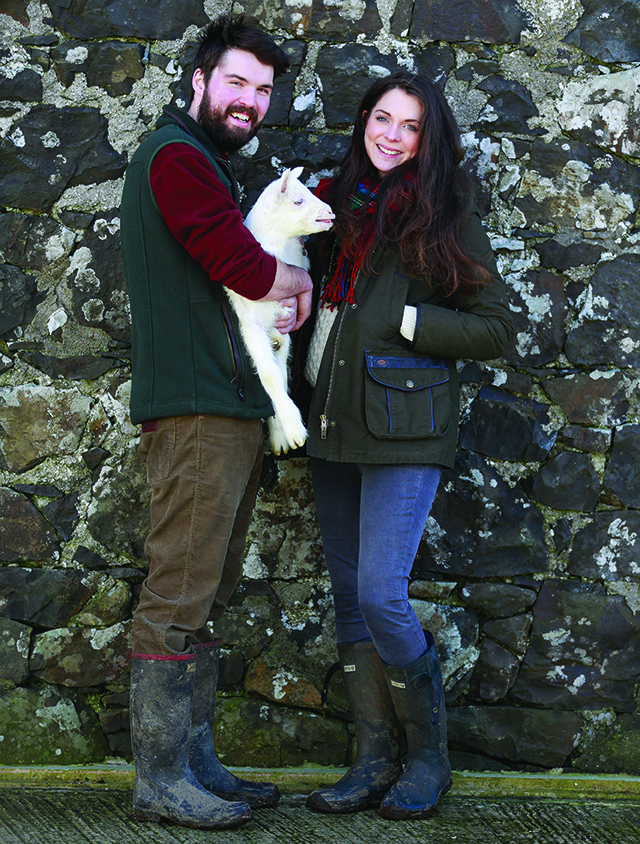
Photo by Ramona Farrelly/Irish Farmers Journal
Today, the Coles host about 300 goats and 24 calves every year, as well as vegetable gardens, poultry and plans for pigs. They also sustainably manage local deer populations and produce venison when in season. The team currently consists of the two of them and Charlie’s parents. While Charlie takes care of the goats and continues to learn how to integrate permacultural practices, Becky manages Broughgammon’s online presence, works in the garden and runs natural living classes. Charlie’s Mum, Millie, is the butcher, and Dad Robin takes care of the calves. “But we all do whatever is needed of us,” says Becky, “so our days are very varied!”
I wonder whether the team has many plans for 2019. “So many!” says Becky. “We converted one of our stone barns this year and have been using it to hold artisan classes and a farm café; next year we plan to have even more educational classes such as cheesemaking with Corleggy, fermentation, natural beauty, foraging and much more! We are also working towards becoming more environmentally sustainable, and with more of a permacultural ethos. Charlie is really interested in transforming some of the unusable waterlogged fields into species-rich meadows that will encourage deer and wildlife.” They’re aiming to incorporate over 14 species in these meadows, which will be better for the soil as well as having an incredibly positive effect on the wider ecosystem.
I ask Becky whether she has any idea why Irish people don’t typically eat goat. “No idea, but they really should! It’s a really healthy meat, and doesn’t have to be imported.” Does she see attitudes changing? “Totally. We’ve already seen such a change over the last six years. People are always keen to try new flavours, but I think the ethical side of things makes it a better choice for environmentally conscious consumers, too.” Becky’s absolute favourite cut is the tenderloins, essentially “the fillet steaks of the goat; they’re so tender. I fry them in a little butter and garlic for a couple of minutes each side. I also love the legs and shanks — when they’re slow cooked, they are incredible.”
It’s my hope that Broughgammon continues to encourage the inclusion of more goat meat on Irish menus and in home kitchens, meaning smarter farming, less senseless waste and more variety in our diets. This slow-cooked goat curry is paired with traditional Irish flatbreads and inspired by my very first bite of goat — I hope you enjoy it as yours.
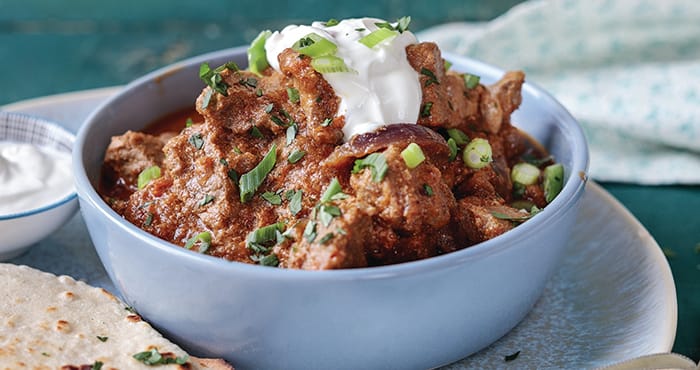
*An earlier version of this article appeared in the February 2019 issue of Easy Food. It has since been edited to correct a minor error.
- summer events
- small business
- gut health
- OATLY
- healthy
- Crudo
- top tips
- All Together Now
- fridge cake
- Events Waterford
- me auld flower
- Events Ireland
- food festival
- news
- dublin
- events Dublin
- dublin festival
- Home-Cooking
- food and drink festival
- online cooking course
- festival line-up
- cooking
- Summer festival
- eco-friendly
- Events
- cosy
- Festivals Ireland
- wine
- Body & Soul
- grapes
- music festival
- south africa
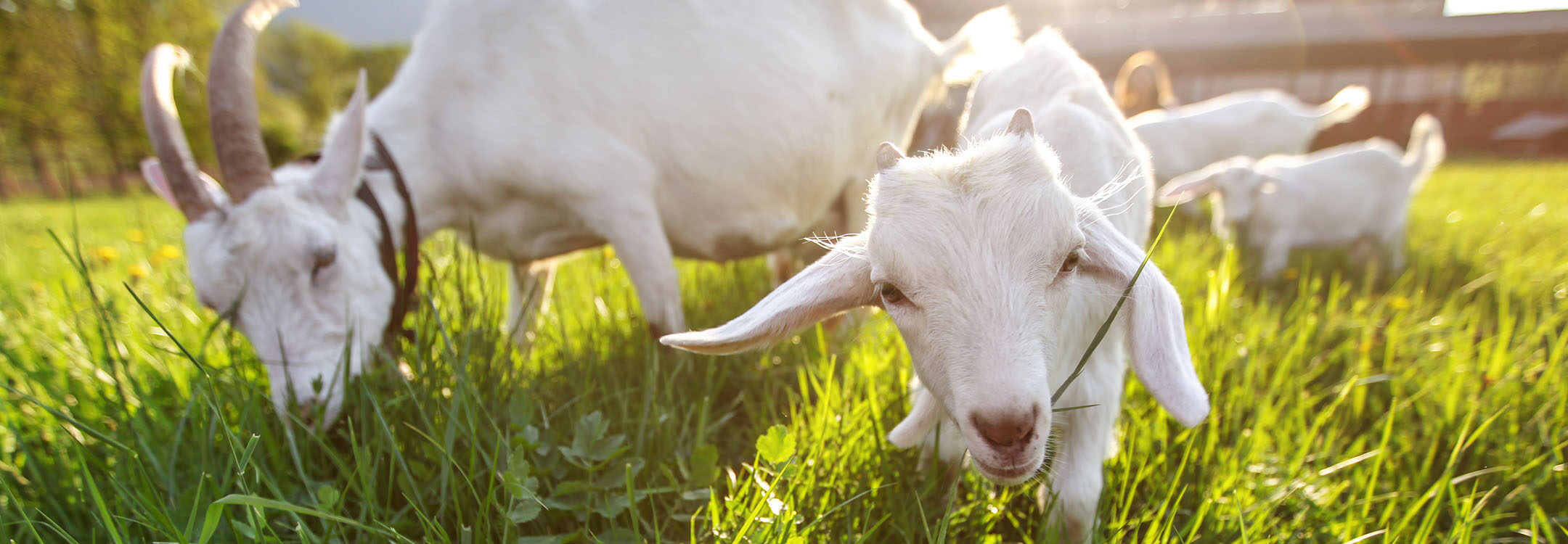
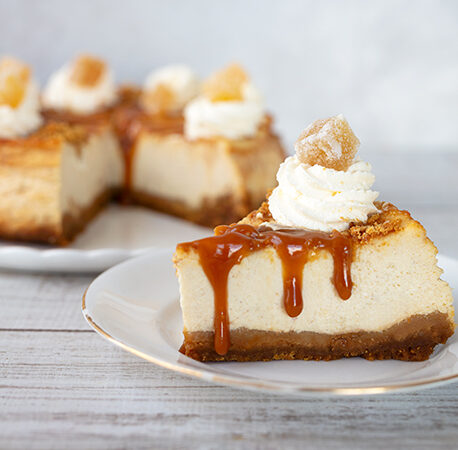
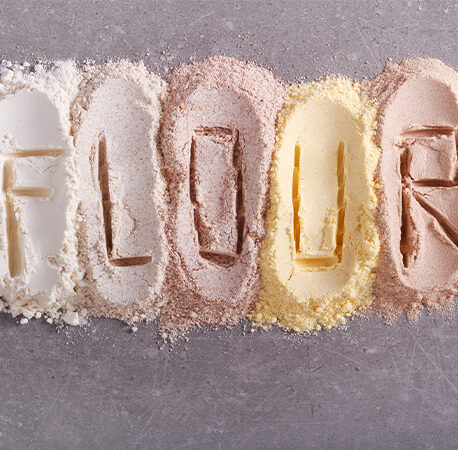
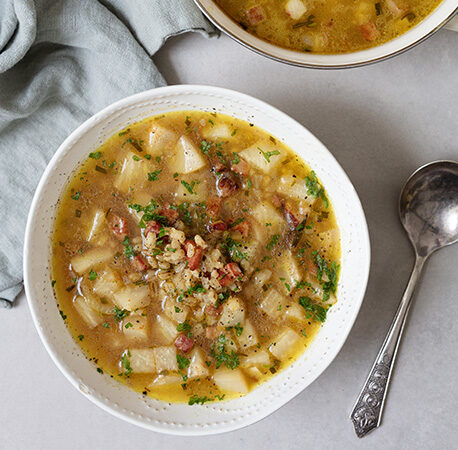
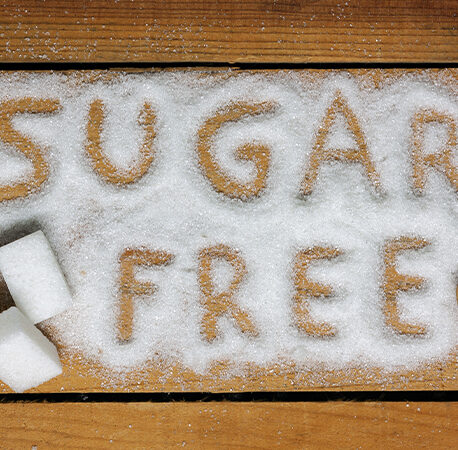
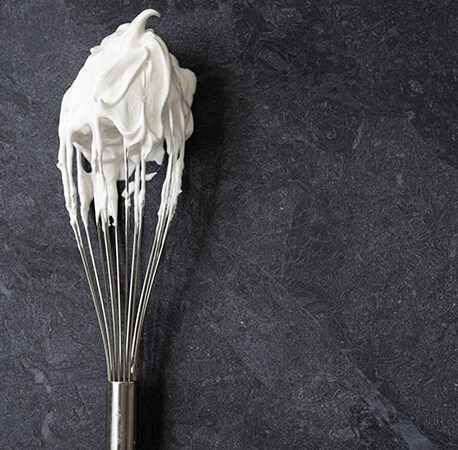
You have to be signed in to comment this post.